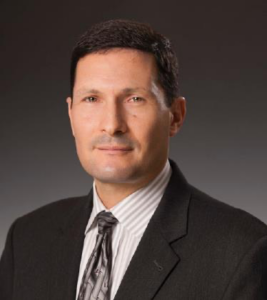
The great President and veteran Theodore Roosevelt once said, “A man who is good enough to shed his blood for his country is good enough to be given a square deal afterwards.” He shared this sentiment with a group of veterans just 38 years after President Abraham Lincoln had promised the country would “care for him who shall have borne the battle.”
These beliefs are foundational to how we should view veterans’ health care – those who served and sacrificed should be taken care of. We have a responsibility as recipients of freedom to do nothing less.
But accessing health care is often the next hardest battle veterans face at home.
Until recently, the Department of Veterans Affairs health care system was the only socialized care in the country. Veterans were waiting weeks and months for needed care, stuck in the bureaucracy of the VA with few options to get out.
The VA MISSION Act of 2018 was a bright promise of generational reform to the VA’s socialized system to better serve veterans’ needs. The law included measures for timely access to care at the VA or outside providers in the community, plans to modernize outdated, crumbling VA facilities, and expansion of caregiver support for veterans of all eras.
In short, the MISSION Act was a gamechanger that would put veterans in the driver’s seat of their care.
The VA MISSION Act of 2018 was a bright promise of generational reform to the VA’s socialized system to better serve veterans’ needs.
But five years later, the Biden Administration has allowed an organized attempt at the VA to crush the promise of reform and end veterans’ health care choice.
The VA focuses on what is best for the institution, not the veteran, by skirting the law and VA regulations that allow for community care access. The VA has also created internal policies and directives contrary to the law while keeping veterans and Congress in the dark.
In 2021, VA leadership quietly shut down its MISSION Act website, limiting veterans’ information on their care options. In 2022, the VA decommissioned its Office of Community Care.
Last year, the VA Secretary Denis McDonough stated in Senate testimony that he wanted to roll back standards for accessing community care. “Demand for health care…has increased more intensively for care in the community than for care in the direct system,” he said. “My hunch is that we should change access standards.”
To find out what’s going on behind the scenes, Americans for Prosperity Foundation obtained documents through a Freedom of Information Act request and lawsuit. Those documents showed the VA has established policies and guidance to dissuade veterans from choosing community care, incorrectly calculate wait times for appointments, and overturn doctors’ referrals to the community.
The VA has even created referral coordination teams that meet without veterans’ knowledge to review and deny veterans community care after they are already deemed eligible. These teams decide if the VA considers it “appropriate” for veterans to use community care based on internal, illegal standards.
But five years later, the Biden Administration has allowed an organized attempt at the VA to crush the promise of reform and end veterans’ health care choice.
The results have been a return to pre-MISSION Act barriers – long wait and drive times, manipulated standards for accessing care, denial of caregivers to veterans who desperately need them, denial of mental health in the community which can lead to increased suicides, and the death of measures to review and streamline outdated facilities.
These problems at the VA have dire consequences.
In a tragic incident, an Arkansas veteran who was fighting cancer died because the VA failed to properly schedule his treatment through community care. The surgery that was required within 30 days wasn’t scheduled until 205 days after the consultation.
This isn’t how the VA is supposed to work. Instead, the VA should be veteran-centric and follow what General Omar Bradley said when he ran the department. “We are dealing with veterans, not procedures; with their problems, not ours.”
The question now is how to get back on track and give veterans the lifesaving care they need and earned.
The short-term solution is to pass U.S. Sen. Jerry Moran’s Veterans’ HEALTH Act, which would end the VA policies and practices that are denying veterans choice of community care.
The long-term solution is to change the VA’s monopoly approach on veterans care by passing U.S. Sen. Marsha Blackburn’s Veterans Health Care Freedom Act. This would give veterans full choice to receive care at the VA or in the community. It is the only way to provide veterans with the care they deserve and to fix systemic issues at the VA.
To give those who have borne the battle a square deal and honor their service, veterans have to come first at the VA.
Because VA won’t do that, Congress must step in.
Darin Selnick is a senior advisor for Concerned Veterans for America and an Air Force veteran. He served as veterans affairs adviser on President Donald Trump’s Domestic Policy Council and as a senior advisor to the VA secretary.




